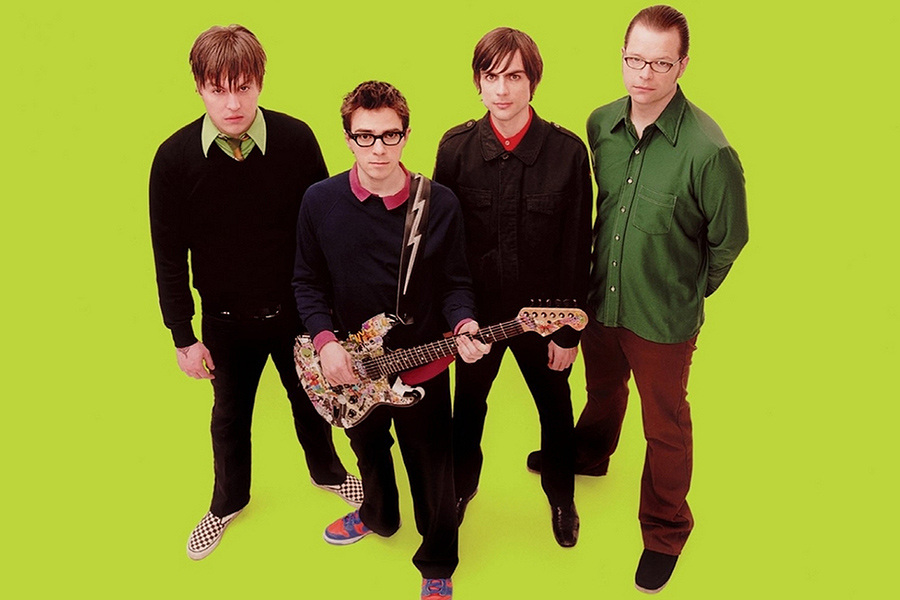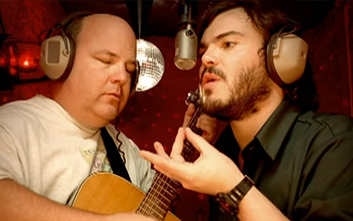Don’t be so quick to dismiss these spoken word songs with speaking in them…this is one gimmick that can turn out better than you think.
Talking. We all do it. It’s always a bit of a shock, however, when the normality of spoken word finds its way into the work of artists who normally prefer to sing. Songs with spoken word aren’t that common. It’s even rarer to find a song that can actually pull off spoken word lyrics without becoming trite or conceited.
Allow us then, to present the greatest spoken word songs or talking songs. We promise it can work.

Fill Me With Apples – The Sleepy Jackson (2003)
In 2003, Perth-born singer-songwriter Luke Steele put Tame Impala and folk rock into a blender and then snorted the resulting concoction. Granted, Steele was playing with psychedelia and aspirant digital sounds before Tame Impala had even formed, but in 2016, The Sleepy Jackson‘s debut album, Lovers, sounds as fresh as ever.
One of the more classically weird examples of psychedelic rock found on the record is Fill Me With Apples, a minute-long melancholy rant to epitomise the enigmatic genius of the band and Steele himself.
The Greatest Man That Ever Lived (Variations on a Shaker Hymn) – Weezer (2008)
If you stopped caring about Weezer post-Green Album, you’re definitely not alone. While LA’s original nerd rockers are far from the group they used to be, this 2008 epic stands out as one of their most considered efforts in recent memory. The track nods to the popular Shakers tune Simple Gifts, but also to the stylings of various rock outfits, including Nirvana, Aerosmith and Green Day.
Lead singer Rivers Cuomo delivers a monologue towards the end of the track, summarising the struggle of the artist and the power of redemption. With Weezer releasing their strongest album in a long time earlier this year, it’s a story that remains more relevant for the band than ever.
At The Bottom of Everything – Bright Eyes (2005)
Most would agree that the piece de resistance of singer-songwriter, Conor Oberst’s prolific career is Bright Eyes’ 2005 album I’m Wide Awake, It’s Morning. At The Bottom Of Everything is the opener to the album, and begins with Oberst recounting a conversation on an aeroplane, which is all at once humorous, emotional and authentic.
The unaccompanied story sets the tone for the tales of loss, wanting and discordance that goes on to define both the song and the album.
Susan’s House – Eels (1996)
Named for a former girlfriend of the band’s lead singer, the song recounts a walk through a downtown neighbourhood on the way to (you guessed it) Susan’s house. The track featured on Eels’ debut record, Beautiful Freak, and was incredibly significant in introducing us to one of the most talented and prolific lo-fi acts of the last 20 years.
The vocals are filtered, though not gratuitously, to add an extra level of grit, as we’re drawn into the monologue of a man observing the urban chaos around him.
Tribute – Tenacious D (2001)
Could it really not be included? There are many comedy tracks that feature spoken word rants (Flight Of The Conchords’ Pencils In The Wind, Weird Al Yankovic’s Albuquerque and Denis Leary’s Asshole all come to mind), but Jack Black’s explanation of the time he and bandmate Kyle Gass played “the greatest song in the world” for the devil stands above them all for its emotive delivery, hilarious surrealism and masterful execution.
It remains a favourite of the Tenacious D catalogue and features both Dave Grohl as the red-skinned devil and a cameo from Ben Stiller in the video clip.
Belong – R.E.M (1991)
One of the most underrated tracks from one of R.E.M’s best-loved records (1991’s Out of Time) is often the subject of theorising by fans of the band. Some suggest that the story, which is told almost entirely in spoken word, is a lament for the apocalypse, and others that it is simply about maternal love.
Whatever the plot, the song remains a clear example of the band’s new sound after leaving their independent label and a passionate example of clever spoken word writing.
Parklife – Blur (1994)
The titular track to perhaps Blur’s best-loved album features spoken vocals from actor Phil Daniels, known best for his leading role in The Who’s film, Quadrophenia.
The track meditates on the absurdities of ordinary British life (Blur were already in form for doing this, having released their second album, Modern Life Is Rubbish, the year before), and Daniels’ voice is central to this meditation. Throw in jangly guitarwork, a bit of saxophone and vocal interjections, and you’ve got one of the most essential Britpop singles of all time.
Tunic (Song for Karen) – Sonic Youth (1990)
Alternative rock pioneers Sonic Youth love a bit of spoken word, and the second track of their hit record, Goo, is no exception. With lyrics written and performed by the band’s bass guitarist, Kim Gordon, the song is an ode to the late Karen Carpenter, of The Carpenters, who had died seven years earlier from complications relating to anorexia.
Tunic is a harrowing portrait of the demons faced by a talented musician and is executed to perfection, remaining one of Sonic Youth’s best-loved tracks to this day.
Watch Me Read You – Odette
English-born Australian singer-songwriter Odette has a tendency to sing with a little more staccato than most. Many of her versus consist of minimal melodies followed by an uproaring of singing in the hook but Watch Me Read You stands out as one of her songs with spoken words.
Odette is such an eloquent lyricist, her spoken word sounds more like a poetry slam than it does like the reading of prose. The artist also articulates her phrases with an impeccable rhythm which leads listeners to fall under her lullaby-like spell.



